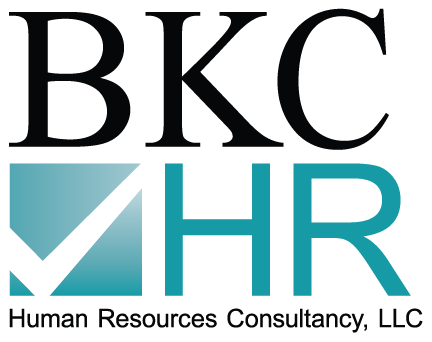 On July 3, 2023, New Jersey Gov. Phil Murphy signed budget bill A.B. 5323, altering several aspects of the state’s corporation business tax (CBT) regime. Among many other changes, the bill imposes an economic nexus threshold for CBT purposes, switches the state’s combined reporting sales factor sourcing method from “Joyce” to “Finnigan,” treats global intangible low-taxed income as a dividend eligible for New Jersey’s dividend exclusion, and makes several technical adjustments to the deduction for net operating losses (NOLs).
On July 3, 2023, New Jersey Gov. Phil Murphy signed budget bill A.B. 5323, altering several aspects of the state’s corporation business tax (CBT) regime. Among many other changes, the bill imposes an economic nexus threshold for CBT purposes, switches the state’s combined reporting sales factor sourcing method from “Joyce” to “Finnigan,” treats global intangible low-taxed income as a dividend eligible for New Jersey’s dividend exclusion, and makes several technical adjustments to the deduction for net operating losses (NOLs).
Most changes affect the CBT; however, the bill also enacts partnership and S corporation apportionment changes for New Jersey individual gross income tax purposes, as well as other tax and administrative changes.
Establishing Economic Nexus Threshold for CBT Purposes
In addition to other nexus-creating contacts or activities, the bill creates an economic nexus threshold for CBT purposes that mirrors New Jersey’s (and Wayfair’s) sales tax economic nexus thresholds of at least $100,000 in New Jersey receipts or at least 200 separate transactions delivered to New Jersey customers. The economic nexus threshold is effective for tax years ending on or after July 31, 2023.
Shifting to Finnigan Apportionment Method for Combined Reporting
For tax years ending on and after July 31, 2023, A.B. 5323 switches New Jersey’s combined reporting apportionment method from Joyce to Finnigan for all combined reporting groups. Under the new law, combined groups must include in their sales-factor numerator New Jersey-source receipts of all group members, regardless of whether a member has nexus with the state. The old rule sourced receipts to the combined group’s New Jersey sales-factor numerator only when sales were from members with New Jersey nexus.
GILTI Qualifying for the Dividend Exclusion
For tax years ending on or after July 31, 2023, GILTI will be considered a dividend for New Jersey. Accordingly, GILTI will now qualify for a 100% dividend exclusion if attributable to controlled foreign corporations (CFCs) owned at least 80%. If a CFC is owned more than 50%, but less than 80%, by the taxpayer, the dividend exclusion is 50%. However, 5% of the GILTI amount is treated as a deemed expense disallowance and an addition modification. Actual dividends are also subject to these changes.
As a result of the change for GILTI, New Jersey will no longer allow the IRC Section 250 deductions.
Research and Experimental Expenditures
Effective for tax years beginning on or after January 1, 2022, A.B 5323 enacts modified decoupling from the federal amendment to IRC Section 174. A current-year deduction of research and experimental expenditures will be allowed for the same tax year in which the New Jersey research and development tax credit is claimed for those expenditures.
Pooling of Prior NOL Carryovers for Combined Groups
When New Jersey enacted its mandatory unitary combined reporting regime effective for tax years ending on or after July 31, 2019, the state enacted prior NOL provisions that prevented sharing prior NOLs generated by one combined group member with other members. For periods ending on or after July 31, 2023, combined group members may now share any unexpired prior NOL carryovers with other members.
NOL Ordering Rule and NOL Limitation
The new law allows the use of the dividend exclusion before the use of an NOL deduction; previously, NOLs were deducted before the dividend exclusion. Because excess NOLs may be carried forward, but a dividend exclusion is lost if not used for the tax year received, this change benefits taxpayers.
However, consistent with the federal NOL carryforward limitation, the bill conforms to IRC Section 172(a)(2) and limits a New Jersey taxpayer’s annual NOL deduction to 80% of taxable income for NOLs arising after July 31, 2023.
Changes to Water’s-Edge Groups That Include Foreign Corporations
Like many mandatory or elective water’s-edge combined reporting states, New Jersey includes specific foreign corporations in a water’s-edge group. Beginning with tax years ending on and after July 31, 2022, a foreign corporation that is not included in a New Jersey elective worldwide combined group and that files a U.S. income tax return is taxable only on income that is effectively connected with a U.S. trade or business (ECI). Any receipts attributable to income that is not ECI are also excluded from the New Jersey allocation factor.
Further, if a foreign corporation is not included in a New Jersey elective worldwide combined group and is organized in a foreign country that is a party to a U.S. tax treaty, and the treaty excludes some income and related expenses from U.S. tax, then those items of income (and related expenses) are excluded from a New Jersey water’s-edge combined report. Any receipts attributable to income that is excluded by a U.S. tax treaty are also excluded from the New Jersey allocation factor. These changes are effective for tax years ending on or after July 31, 2022.
New Entity Types Included in a New Jersey Combined Group
Previously, real estate investment trusts (REITs), New Jersey investment companies, and regulated investment companies (RICs) were not includable in a New Jersey combined group. Now, REITS, RICs, and New Jersey investment companies that meet the new law’s definition of captive are included in a New Jersey combined group, effective for tax years ending on or after July 31, 2023. However, if one of these entities is owned at least 50% by a bank having assets of no more than $15 billion or does not otherwise meet the definition of captive, then it is not included.
IRC Section 163(j) Business Interest Limitation
The bill treats the members included in a combined return as if the filing members filed a federal consolidated return for purposes of the IRC Section 163(j) business interest limitation. As a result, the New Jersey Section 163(j) business interest limitation and interest deduction should mirror the federal consolidated return. If a New Jersey combined group does not include all the affiliates in a federal consolidated group, then the combined group and those affiliates will be treated as having filed a federal consolidated return. This change is effective for tax years ending on and after July 31, 2022.
Repeal of Related-Party Interest and Intangible Expense Addbacks
Effective for tax years ending on or after July 31, 2023, the bill repeals the provisions regarding related-party interest expense and intangible expense addbacks.
Partnerships Apportion Income and Source Receipts Same as Corporations
For tax years beginning on and after January 1, 2023, A.B. 5323 requires partnerships and S corporations doing business inside and outside New Jersey to use single-sales-factor apportionment for determining state income. This aligns New Jersey gross income tax apportionment with CBT apportionment. Previously, partnerships and S corporations had to use an equally weighted three-factor allocation formula to determine their individual partners’ or shareholders’ New Jersey-source income. Partnerships and S corporations will also now be required to use New Jersey’s CBT market-based sourcing for receipts from sales of services and intangibles.
Insights
- Taxpayers should pay close attention to the various effective dates applicable to each of the legislative amendments – notably, the changes effective for tax years either beginning or ending in 2022.
- Taxpayers are reminded that although New Jersey’s new economic nexus threshold could subject them to the CBT, qualifying for the protections provided by P.L. 86-272 will also shield taxpayers from CBT liability, but not the New Jersey minimum tax.
- The CBT changes enacted by the bill are comprehensive. The New Jersey Division of Taxation has issued a technical bulletin (TB-107) to explain the changes, as well as other provisions of the bill. On July 25, 2023, the Division also issued three relevant technical advice memoranda: TAM 2011-6(R) addresses foreign corporations subject to tax; TAM 2011-13R covers adding back related member interest expense for privilege periods (tax years) ending before July 31, 2023; and TAM 2011-22(R) addresses international affiliate transactions involving intangibles and intellectual property for privilege periods ending before July 31, 2023.
- Taxpayers subject to the gross income tax should expect New Jersey to offer relief for any underpayments of estimated taxes or extensions that result from the income apportionment changes applicable to partnerships.
Contact us to discuss your tax planning and compliance needs.
Read more helpful articles here.
Written by Scott Smith, Nicholas Montorio and Sung Wook Kong. Copyright © 2023 BDO USA, P.A. All rights reserved. www.bdo.com




